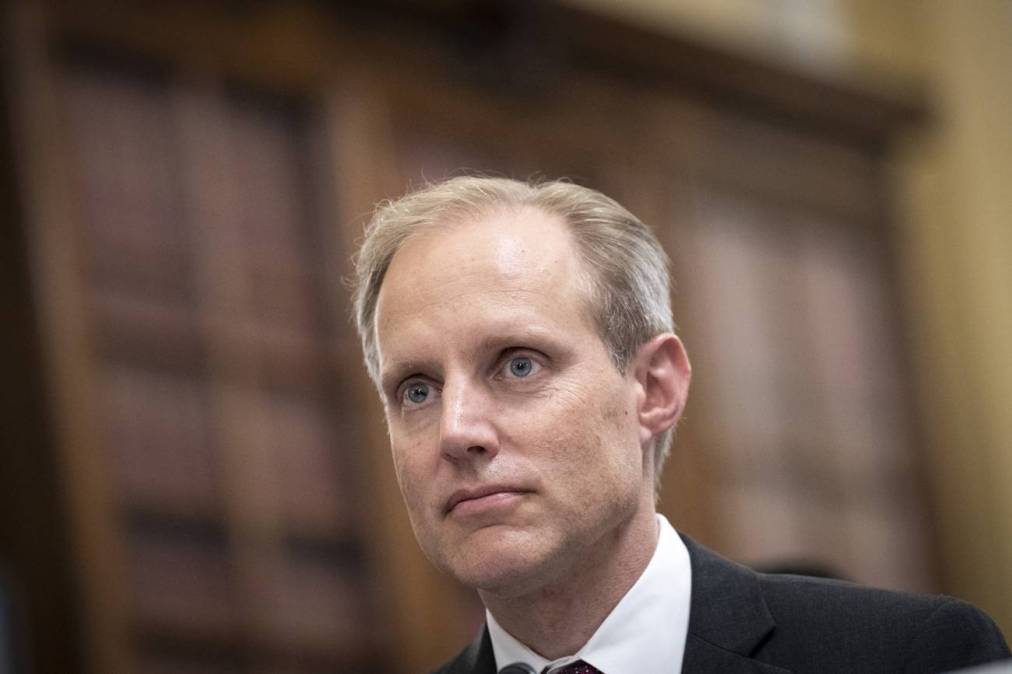Federal cuts to election security concern secretaries of state

After the Cybersecurity and Infrastructure Security Agency last week announced cuts to its staffing and programs, several secretaries of state told StateScoop they’re concerned about what it could mean for the future of the nation’s voting systems.
Their worries follow acting CISA Acting Director Bridget Bean last week circulating a memo announcing a “review and assessment” of every program, service, action and position related to the agency’s efforts to counter “mis, dis- and malinformation,” with results due March 6.
CBS News last weekend reported that officials at the Department of Homeland Security fired about 400 employees, citing inadequate performance. This included more than 130 staff at CISA, an agency that President Donald Trump created in 2018 to consolidate federal efforts to protect against a rising tide of cyberattacks and foreign interference in U.S. elections.
Bean’s memo noted that funding has also been discontinued for the Elections Infrastructure Information Sharing and Analysis Center, or EI-ISAC, a program housed at the nonprofit Center for Internet Security that provides training, threat monitoring services and shares resources with elections officials in state and local government offices across the country.
A White House spokesperson told StateScoop that EI-ISAC’s funds were eliminated because its work no longer effectuates the priorities of DHS. The funding cuts come as DHS “partially terminates” its cooperative agreement with CIS, according to a separate Feb. 14 memo obtained by StateScoop.
The order technically leaves the New York nonprofit free to provide services to state and local governments, but without its prior designation, a majority of states are now legally barred from accepting its services. One source familiar with the situation, who requested anonymity for fear of reprisal, said these changes will likely shutter the EI-ISAC.
The White House spokesperson said that funding was not eliminated for CIS’s Multi-State Information Sharing and Analysis Center, which provides threat monitoring, training and other cybersecurity services outside of the elections space. The spokesperson declined to provide further clarification on which CISA programs will be affected by cuts.
‘A difficult place’
New Mexico Secretary of State Maggie Toulouse Oliver, a Democrat who during Trump’s first term praised his administration’s work in establishing CISA and convening experts to improve the security of the nation’s election infrastructure, told StateScoop she’s now “very concerned” about the cuts, particularly how they will affect election offices in rural counties that had been relying on the funding and free technical services CISA provided.
“This is a difficult place to be in,” Toulouse Oliver said. “Most of us are starting our legislative sessions. Ours is very short in New Mexico and we didn’t even have the foreknowledge to be able to relay to our legislature that we were going to be losing out on a lot of these tools and resources.”
It’s common for smaller local governments to employ information technology teams of only a handful of people — or for the smallest county offices, for a single employee to split time between IT and other responsibilities. Toulouse Oliver said the two most useful services CISA and EI-ISAC offered included “robust” penetration testing, which alerted officials to vulnerabilities in their voting systems, and Albert sensors. Over the last several years, CIS has distributed to state and local governments more than 1,000 of the devices, which act as an early warning system for anomalous network activity.
“I can have all the Albert sensors on my systems, but I’m connected to 33 counties,” Toulouse Oliver said. “And if one of those counties doesn’t have an Albert sensor, that’s one county that we’re missing potentially that can have an upward flow of weird traffic. It’s just concerning that it sounds like those two things are going to go away and we’re going to have to figure out a way to pay for them.”
Toulouse Oliver said that in addition to the free services, her state was also receiving $1 million annually via the Help America Vote Act, a 2002 law created by former President George W. Bush that instantiated new standards for voting systems and set new accessibility and authentication rules for voters. HAVA also created the Election Assistance Commission, an independent clearinghouse for election administration information. Toulouse Oliver said some are concerned that the Trump administration may start cutting funding and programs at EAC next.
“I can guarantee you it’s going to be a big hit to our office and that’s relative compared to small counties, who already don’t have enough resources,” she said of CISA’s recent cuts. “To be honest, we’re scrambling, trying to figure out what we can preserve.”
‘For Americans’
Cybersecurity efforts in government have traditionally enjoyed nonpartisan status and bipartisan support. David J. Becker, executive director and founder of the nonprofit Center for Election Innovation and Research, said he believes the expertise developed at CISA over the past seven years has become a casualty of politics.
“What CISA was able to do was to provide a kind of birds-eye view of what cyber threats there were that could affect our national election infrastructure,” Becker said. “Since elections are run at the states, each state doesn’t have an entity as big as the federal Department of Homeland Security. So they helped them put the pieces together.”
Beyond cybersecurity, CISA also helped election offices with physical security, preparing for and responding to threats of violence against election workers and white powder envelopes, along with disinformation campaigns targeting elections. Disinformation about the voting process — such as a baseless claim repeated by Trump that the 2020 presidential election was rigged against him — is another threat that CISA and the election security community at large have found some success in tamping down in recent years.
“It appears that even though our foreign adversaries are only ramping up their efforts, with massive misinformation campaigns, with specific targeted campaigns, we are now effectively unilaterally disarming,” Becker said. “I imagine that our adversaries are celebrating this as they’re planning their next attacks.”
Becker credited the Trump administration for CISA’s success in fighting election disinformation campaigns, which he said do not necessarily favor a particular party in the United States. He pointed to Russia’s tendency to favor Republicans, Iran’s preference for Democrats and China’s penchant for sowing chaos.
“American elections should be for Americans,” Becker said. “They should not be for foreign adversaries to mislead the American people. And that was something we all agreed upon on a bipartisan basis, apparently up until recently.”
‘A major mistake’
The Federal Trade Commission on Thursday announced an inquiry into the “potentially illegal” and “unfair” censorship practices of technology platforms. A press release encourages “platform users who have been banned, shadow banned, demonetized, or otherwise censored” to share their stories with the agency.
And The New York Times reported Thursday that the Trump administration has continued to pull back on the government’s work flagging foreign disinformation campaigns, reassigning several dozen officials at the FBI and CISA who’d been assigned to the task.
The moves reverse the government’s posture over the last several years, when officials sought to identify and counter mis- and disinformation leveled against all 16 sectors designated by CISA as critical infrastructure, a group that also includes the power grid, transportation and water systems.
“I don’t think the elections sector differs from any other sector that enjoys the critical infrastructure designation,” said Steve Simon, Minnesota’s secretary of state. “Meaning if a foreign adversary is spinning up false tales and lies about any sector, I think we should have folks in the federal government who are there to identify it and push back on it. I think it would be a major mistake and a danger to national security to abandon the misinformation mission.”
Simon, a Democrat who was first elected secretary of state in 2014, said that when he learned about foreign interference in the 2016 presidential election, he was “shocked and outraged.” Minnesota was one of 21 states where nation-state hackers targeted websites and election systems, in some cases stealing voter information, though they did not succeed in Minnesota.
That election “changed everything,” he said, noting that one lesson gleaned in the intervening years has been that election security can only be effectively managed by the government.
DHS Secretary Kristi Noem has said in recent weeks that as her agency reorganizes she plans to make more use of the private sector in defending the nation’s digital infrastructure.
“They’re privy to intelligence information and other insights that no private vendor could ever know,” Simon said. “So in the end, it’s not just about probing our systems and finding potential soft spots. It’s about giving us actionable suggestions that are tied to intelligence assessments about what is out there and what is likely to come next.”
He argued the Trump administration, like any new administration, should be given room to evaluate CISA’s work and its organizational chart, but that certain core services should remain, including its penetration testing, physical security services, threat assessments and “closed-door intelligence briefings.”
“These are services that, to my observation, secretaries of state all across the country have really come to rely upon,” he said.






